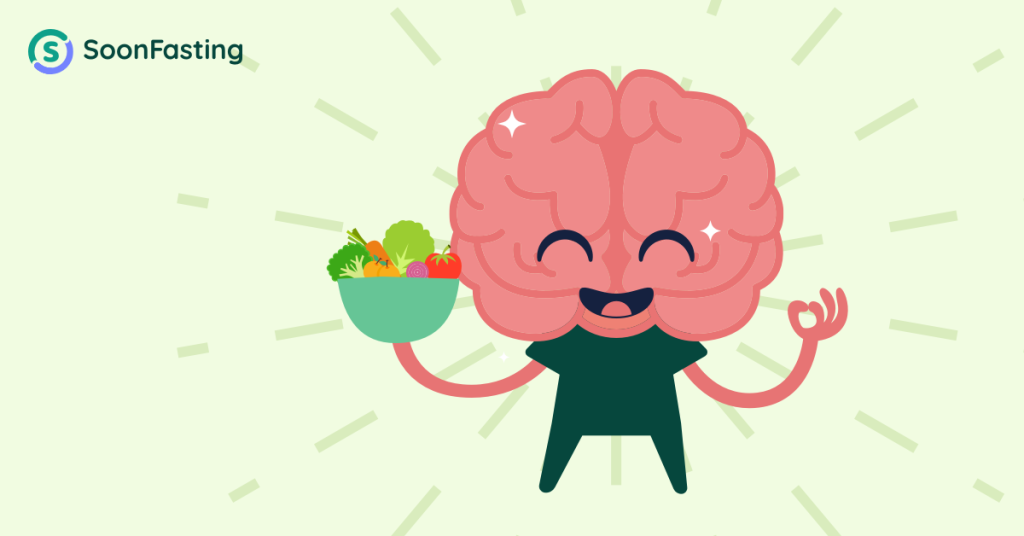How do you feel after eating?
Delighted or depressed?
Calm or active?
Cheerful or irritable?
Maybe it depends on what you eat.
That’s right – food can affect your temperament.

Here’s How it Works
Our brains are powerful, complicated machines that are always hard at work (even when we’re sleeping). And like any machine, the brain requires a steady supply of fuel to keep it going. That fuel comes from the foods we eat, and according to scientists, certain types of foods help our brains function better than others. But eating healthy doesn’t just mean your brain will be better equipped to calculate complex equations or memorize capital cities. A well-fed brain can actually put you in a better mood.
It starts with our stomachs, which are filled with neurons, or nerve cells, that send messages to the brain that often influence our emotional state. Healthy foods help protect the digestive system and keep it running efficiently, which gives those neurons nothing but good news to report to your brain.
Good Brain Fuel
So what exactly are some foods that will make your brain, that is, you, feel great? Research has shown that foods containing high levels of nutrients provide the brain with power and protect it from stress. Think crisp carrots, juicy apples, turkey on whole wheat, or even a curly kale smoothie.
Fruits, veggies, whole grains, and lean meats are the kinds of foods that keep our stomachs and our brains working well, and that, in turn, improve our mood.
Nutrients good for brain health should include:
- Folate – It helps with dopamine production without forcing it to surge the way sugars do. Find it in leafy greens, lentils, and cantaloupes.
- Iron – is a mineral that the body needs for growth and development.
- Long-chain omega-3 fatty acids (EPA and DHA).
- Magnesium – This helps with everything from nerve and muscle function to keeping a heartbeat steady. Load up with natural sources such as dark chocolate, cacao nibs, almonds and cashews, spinach and other dark leafy greens, bananas, and beans.
- Selenium – It is an essential component of various enzymes and proteins that help to make DNA and protect against cell damage and infections.
- Thiamine – It helps the body generate energy from nutrients.
- Vitamin A – It is a nutrient important to vision, growth, cell division, reproduction, and immunity.
- Vitamin B6 – It is a vitamin that benefits the central nervous system and metabolism.
- Vitamin B12 – It is needed to form red blood cells and DNA. It is also a key player in the function and development of brain and nerve cells.
- Vitamin C – It is a nutrient your body needs to form blood vessels, cartilage, muscle, and collagen in bones. Vitamin C is also vital to your body’s healing process.
- Zinc – It’s needed for immune function, wound healing, blood clotting, thyroid function, and much more. It also plays a key role in maintaining vision and might have effects against viruses.
That means all foods containing the above nutrients are all good for brain health.
Not-So-Good Brain Fuel
Just as some foods can have a positive effect on how we feel, others can do quite the opposite. Highly processed foods and those with lots of unhealthy fats, sugar, and salt added to them are not great brain fuel. Sure, these treats may be tasty, but studies have shown that eating an excessive amount of sweets and junk food is detrimental to the brain’s ability to function and can even leave us feeling indignant or melancholy. That’s because these foods don’t just upset your stomach they can upset your brain and, consequently, your mood.
Fuel for the Future
But it’s not just about today’s mood. People’s brains continue growing well into their 20s, and scientists say that what teens eat can have a deleterious effect on how their brains develop. The final part of the brain to mature is the area of the brain that’s vital for behavioral control and decision-making, and a diet rife with sugar and unhealthy fats can sidetrack this development, making it harder for the person to make positive decisions down the road.
As a neuroscientist who focuses her research on the teenage brain, Dr. Amy Reichelt published a study on the long-term effects of eating too much junk food. She reported that an unhealthy diet can interfere with a teen’s attention span in school as well as learning and recalling new information. In addition, multiple studies have found a correlation between a diet high in sugar and the worsening of symptoms of mood disorders, such as depression.
“For young people who are experiencing any kind of mental health conditions such as depression or anxiety, the diet should be one of the first things that they look at in being able to make positive changes for their brains and mental health,” suggests Dr. Reichelt.
So try paying attention to how certain foods make you feel. You may find some interesting connections because when it comes to your mood, it might be all about the food.
A Simple Food List Good for Brain
Fruits
- Oranges
- Bell peppers
- Guava
- Kiwi
- Strawberries
Veggies
- Tomatoes
- Broccoli
- Collards
- Spinach
- Kale
Whole grains
- Whole-grain bread
- Whole-grain pasta
- Whole-grain barley
- Brown rice
- Oatmeal
- Bulgur wheat
Nuts & Seeds
- Walnuts
- Pumpkin seeds
Lean meats
- Beef
- Fish
- Chicken breast
Reference Articles:
https://www.ncbi.nlm.nih.gov/pmc/articles/PMC2805706/
https://www.rmit.edu.au/news/all-news/2016/sep/five-ways-junk-food-changes-your-brain